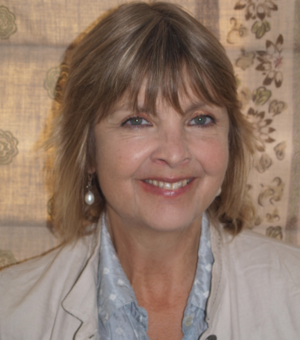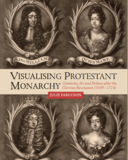Dr Julie Farguson
I am a historian of early modern Britain (1660- c.1730) with a particular interest in visual and material culture and the processes of seeing and looking. My forthcoming monograph, Visualising Protestant Monarchy: Ceremony, Art and Politics after the Glorious Revolution (1689-1714) (Boydell and Brewer, April/May 2021), draws on these interests and explores the intersection between ceremony, art and politics in the twenty five years following the Revolution of 1688-89.
Research Interests
My research is centred on the cultural, political and social histories of early modern Britain and their interactions with the rest of Europe. I am particularly interested in visual and material culture and the processes of seeing and looking, what scholars such as Hal Foster (1988) term ‘Vision and Visuality’. Vision relates to the biological sense of sight while ‘visuality’ is concerned with ‘sight as social fact’. Embracing a definition of ‘visual experiences’ that includes the ability to form mental pictures of events read or heard about is valuable when thinking about the use of ceremonial in the past, and my publications to date have drawn attention to the significance of non-verbal systems of communication in early modern political culture.
Current research interests include royal progresses in the post-Restoration era (1660-1714), the queenship of Mary II, and Prince George of Denmark (consort to Queen Anne r. 1702-1714 and Lord High Admiral), in the context of his Scandinavian upbringing and life experiences. Some of this research will feature in my chapter (‘George of Denmark: The Quiet Protestant Hero’), for Tudor and Stuart Consorts: Power, Influence, Dynasty, eds., Aidan Norrie, Carolyn Harris, Joanna Laynesmith, Danna Messer, and Elena Woodacre (2022).The book is part of a four-volume series on English consorts, to be published in Palgrave Macmillan’s “Queenship and Power” series. A parallel interest, stimulated by my research on a set of naval portraits commissioned by George in the early 1700s, is a group of Admirals who served in the post Glorious Revolution period (e.g. Rooke and Shovell), and the cultural dimensions of the early modern Navy. I am interested in the maritime worlds these men created through visual and material culture, and the extent to which their naval identity shaped their cultural, political and social interactions with the wider public. This research interest led to my involvement in a collaborative knowledge exchange project with Dr Linda Hulin of the Oxford Centre for Maritime Archaeology and the National Trust (Making maritime memories: the British country house and the sea, 2018/19).
Featured Publication
Teaching
I currently teach:
| Prelims: | FHS: |
|
History of the British Isles 4:c.1500-1700 |
History of the British Isles: Reformations and Revolutions, 1500-1700 |
| History of the British Isles 5: c.1688-1848 |
History of the British Isles 5: Liberty, Commerce and Power, 1685-1830 |
| European and World History 3: Renaissance, Recovery, and Reform |
Special Subject: English Architecture, 1660-1720 |
| Approaches to History | Disciplines of History |





